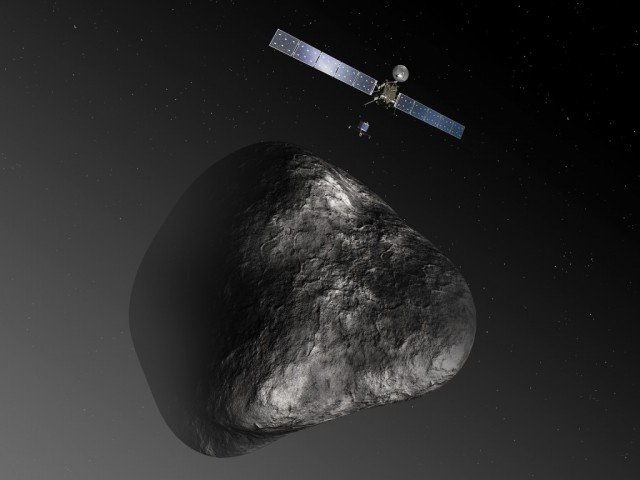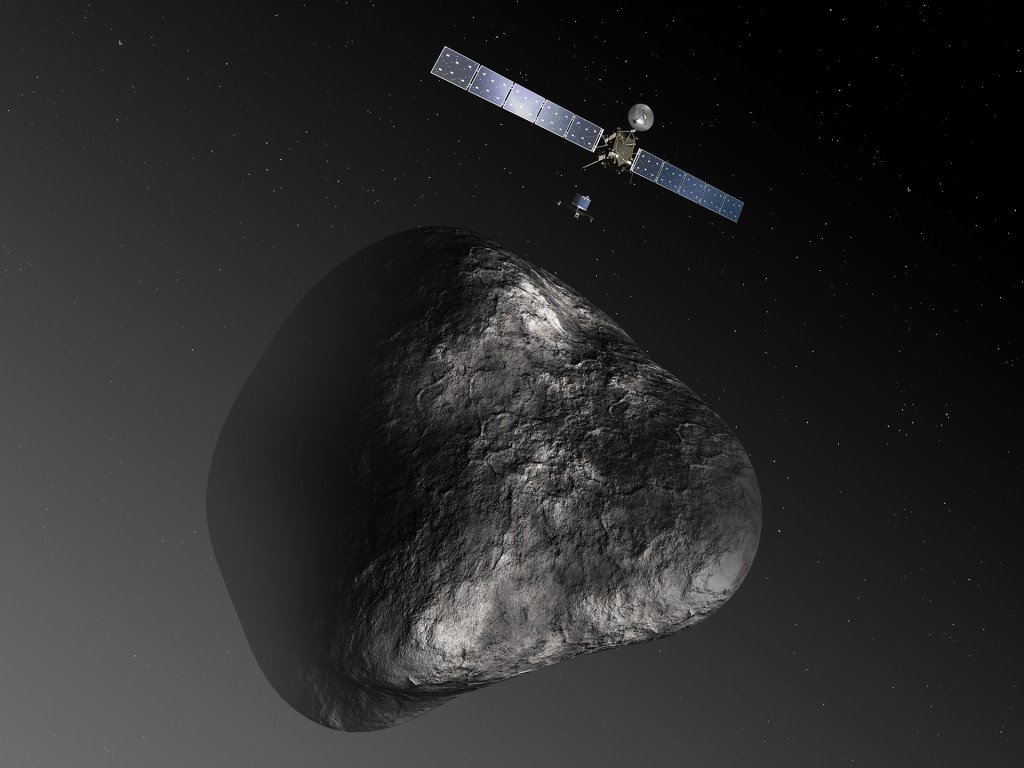Rosetta probe has ended its mission to Comet 67P by crash-landing on to the icy object’s surface on September 30.
The impact had occurred when radio contact to Rosetta was lost abruptly, mission control in Darmstadt, Germany, has confirmed.
The assumption is that the probe would have been damaged beyond use.
In the hours before the planned collision, the ageing probe sent back a host of high-resolution pictures and other measurements of the icy dirt-ball.
ESA mission manager Patrick Martin said: “I can announce full success of this historic descent of Rosetta towards Comet 67P.”
“Farewell Rosetta; you’ve done the job. That was space science at its best.”

Researchers expect all the data gathered at Comet 67P in the past two years to keep them busy for decades to come.
The loss of signal, which happened at 11:19 GMT (13:19 CEST), was greeted by muted cheers and handshakes – not so surprising given the bittersweet nature of the occasion.
Some of the scientists watching on here in Darmstadt have spent the better part of 30 years on this project.
The researchers had wanted the descending probe to get a look inside one of the many pits that pockmark the surface.
Some of the images that came back were acquired just seconds before the collision.
Comet 67P/Churyumov-Gerasimenko is currently heading away from the Sun, limiting the solar energy available to Rosetta to operate its systems.
Rather than put the probe into hibernation or simply let it slowly fade into inactivity, the mission team determined that the venture should try to go out with a bang.
ESA project scientist Matt Taylor said that even if Rosetta was sent to sleep with the intention of waking it up again when 67P next visited the brighter environs of the inner Solar System – there was no guarantee the technology would still be working properly.
Because Rosetta was not designed to land, some of its structures very likely broke on contact with the comet. Controllers left no room for doubt in any case by pre-loading a software sequence that would jump the computers into a shutdown when the probe felt a big jolt.
Rosetta arrived at 67P in August 2014, after a 10-year journey from Earth.
